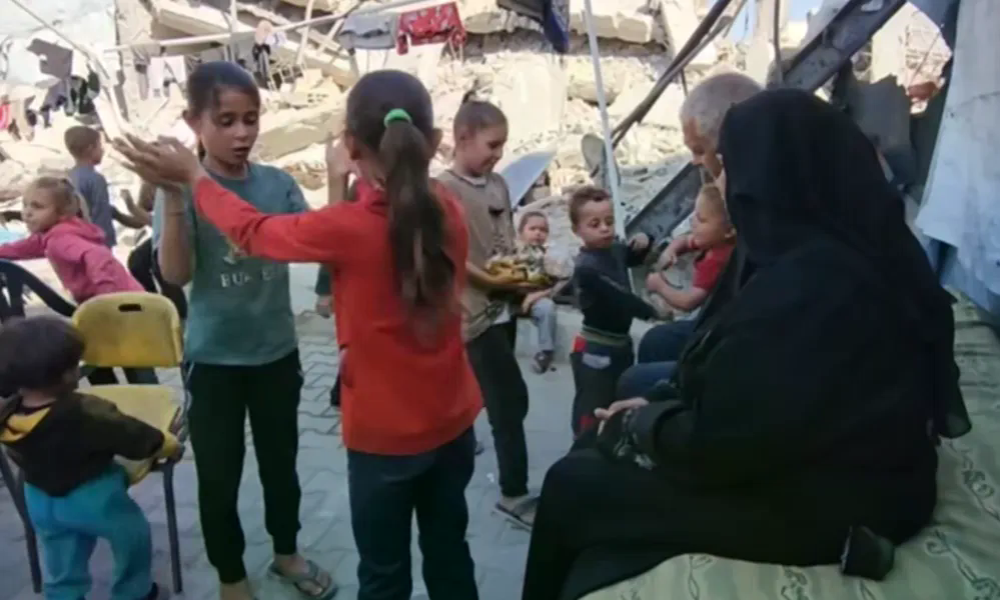
In the ongoing conflict in Gaza, entire generations have been devastated since Israel launched its military operations two years ago. This has deepened the suffering of the Palestinian civilian population, who have endured prolonged trauma and loss.
According to the Palestinian Central Bureau of Statistics, more than 39,000 children in Gaza have lost one or both of their parents. Of these, approximately 17,000 have been left without any parental care since October 2023. The impact of this loss is profound, as many children are now growing up without the support and guidance of their families.
In the ruins of Gaza City, a couple is raising 36 grandchildren whose parents were killed during the conflict. Hamed and Rida Aliwa, who have lost five sons, now take on the responsibility of caring for their orphaned grandchildren. Their daily life is filled with challenges, including providing food, water, and protection for the children.
Rida, 60, shared her emotional struggle with Al Jazeera’s Tareq Abu Azzoum. “These children need care,” she said. “They need food, water, and special attention. It’s a huge responsibility that brings me immense stress.” Each child has experienced the horrors of war, learning to share limited resources and sleep amidst the sounds of explosions.
For Hamed and Rida, every day is a sacrifice made not for themselves, but for the children who now see them as their only family. Rida expressed her grief over losing her sons: “I would be lying if I said I didn’t miss them. I miss them deeply. My heart aches for them. My sons meant everything to me — they were the reason I kept going. Now, I’m taking care of their injured children.”
The toll of the conflict is staggering. At least 20,000 children have been killed, with one child dying every hour over the past 24 months. UNICEF estimates that between 3,000 and 4,000 children have lost one or more limbs due to the violence.
Life for the Aliwa family is an unrelenting battle for survival. They face daily struggles to find food, access clean water, and ensure the safety of their grandchildren. Hamed described the harsh reality: “The basic elements of life are almost impossible to find.”
Despite a U.S.-brokered ceasefire that began on October 10, conditions remain dire. Over 473,000 people have returned to northern Gaza, but they face widespread destruction and shortages of essential supplies, according to the United Nations. The threat of renewed violence looms large.
“We live under the constant sound of drones that keep us awake all night, and we are scared that the war could start again,” Hamed said. For families like the Aliwas, the future remains uncertain, and the scars of war continue to shape their lives.


